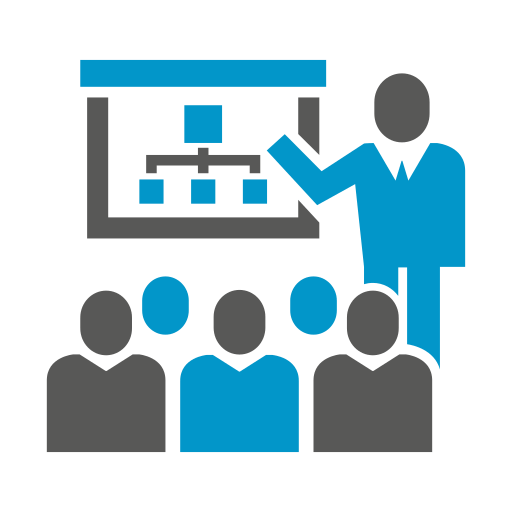Description
WHAT YOU WILL LEARN
A Certified Big Data Consultant has demonstrated proficiency across a range of key Big Data topics, with a particular focus on Big Data analytics and analysis techniques, as well data processing and storage. The breadth of this skill-set enables a Certified Big Data Consultant to perform in a variety of capacities as a member of a Big Data solutions team. Depending on the exam format chosen, attaining the Big Data Consultant Certification can require passing a single exam or multiple exams. Those who achieve this certification receive an official digital Certificate of Excellence, as well as a digital Certification Badge from Acclaim/Credly with an account that supports the online verification of certification status.
MODULE OVERVIEW
The Big Data Consultant certification track is associated with the following courses and the courses can be delivered via instructor-led training.
BDSCP Module 1: Fundamental Big Data
This foundational course provides a high-level overview of essential Big Data topic areas. A basic understanding of Big Data from business and technology perspectives is provided, along with an overview of common benefits, challenges, and adoption issues. The course content is divided into a series of modular sections, each of which is accompanied by one or more hands-on exercises.
The following primary topics are covered:
– Understanding Big Data
– Fundamental Terminology & Concepts
– Big Data Business & Technology Drivers
– Traditional Enterprise & Technologies Related to Big Data
– Characteristics of Data in Big Data Environments
– Dataset Types in Big Data Environments
– Fundamental Analysis and Analytics
– Machine Learning Types
– Business Intelligence & Big Data
– Data Visualization & Big Data
– Big Data Adoption & Planning Considerations
Duration: 1 Day
BDSCP Module 2: Big Data Analysis & Technology Concepts
This course explores a range of the most relevant topics that pertain to contemporary analysis practices, technologies and tools for Big Data environments. The course content does not get into implementation or programming details, but instead keeps coverage at a conceptual level, focusing on topics that enable participants to develop a comprehensive understanding of the common analysis functions and features offered by Big Data solutions, as well as a high-level understanding of the back-end components that enable these functions.
The following primary topics are covered:
– Big Data Analysis Lifecycle (from business case evaluation to data analysis and visualization)
– A/B Testing, Correlation
– Regression, Heat Maps
– Time Series Analysis
– Traditional Enterprise
– Network Analysis
– Spatial Data Analysis
– Classification, Clustering
– Filtering (including collaborative filtering & content-based filtering)
– Sentiment Analysis, Text Analytics
– Processing Workloads, Clusters
– Cloud Computing & Big Data
– Foundational Big Data Technology Mechanisms
Duration: 1 Day
BDSCP Module 3: Big Data Analysis & Technology Lab
This course module presents participants with a series of exercises and problems designed to test their ability to apply knowledge of topics covered previously in course modules 1 and 2. Completing this lab will help highlight areas that require further attention, and will further prove hands-on proficiency in Big Data analysis and technology and practices as they are applied and combined to solve real-world problems.
As a hands-on lab, this course provides a set of detailed exercises that require participants to solve a number of inter-related problems, with the goal of fostering a comprehensive understanding of how Big Data environments work from both front and back-ends, and how they are used to solve real-world analysis and analytics problems.
For instructor-led delivery of this lab course, the Certified Trainer works closely with participants to ensure that all exercises are carried out completely and accurately. Attendees can voluntarily have exercises reviewed and graded as part of the class completion. For individual completion of this course as part of the Module 3 Study Kit, a number of supplements are provided to help participants carry out exercises with guidance and numerous resource references.
Duration: 1 Day
BDSCP Module 4: Fundamental Big Data Analysis & Science
This course provides an in-depth overview of essential topic areas pertaining to data science and analysis techniques relevant and unique to Big Data with an emphasis on how analysis and analytics need to be carried out individually and collectively in support of the distinct characteristics, requirements and challenges associated with Big Data datasets.
The following primary topics are covered:
– Data Science, Data Mining & Data Modeling
– Big Data Dataset Categories
– High-Volume, High-Velocity, High-Variety, High-Veracity, High-Value Datasets
– Exploratory Data Analysis (EDA)
– EDA Numerical Summaries, Rules and Data Reduction
– EDA analysis types, including Univariate, Bivariate and Multivariate
– Essential Statistics, including Variable Categories and Relevant Mathematics
– Statistics Analysis, including Descriptive, Inferential, Covariance, Hypothesis Testing, etc.
– Measures of Variation or Dispersion, Interquartile Range & Outliers, Z-Score, etc.
– Probability, Frequency, Statistical Estimators, Confidence Interval, etc.
– Data Munging and Machine Learning
– Variables and Basic Mathematical Notations
– Statistical Measures and Statistical Inference
– Confirmatory Data Analysis (CDA)
– CDA Hypothesis Testing, Null Hypothesis, Alternative Hypothesis, Statistical Significance, etc.
– Distributions and Data Processing Techniques
– Data Discretization, Binning and Clustering
– Visualization Techniques, including Bar Graph, Line Graph, Histogram, Frequency Polygons, etc.
– Prediction Linear Regression, Mean Squared Error and Coefficient of Determination R2, etc.
– Clustering k-means, Cluster Distortion, Missing Feature Values, etc.
– Numerical Summaries
Duration: 1 Day
BDSCP Module 7: Fundamental Big Data Engineering
This course covers engineering-related concepts, techniques and technologies for the processing and storage of Big Data datasets. It highlights the unique challenges faced when processing and storing large, volatile and disparate sets of data. NoSQL is covered and the MapReduce data processing engine is explained in detail as a base framework for high-volume batch data processing.
The following primary topics are covered:
– Big Data Engineering Techniques and Challenges
– Big Data Storage, including Sharding, Replication, CAP Theorem, ACID and BASE
– Master-Slave, Peer-to-Peer Replication, Combining Replication with Sharding
– Big Data Storage Requirements, Scalability, Redundancy and Availability
– Fast Access, Long-term Storage, Schema-less Storage and Inexpensive Storage
– On-Disk Storage, including Distributed File System and Databases
– Introduction to NoSQL and NewSQL
– NoSQL Rationale and Characteristics
– NoSQL Database Types, including Key-Value, Document, Column-Family and Graph Databases
– Big Data Processing Engines
– Distributed/Parallel Data Processing, Schema-less Data Processing
– Multi-Workload Support, Linear Scalability and Fault-Tolerance
– Big Data Processing Requirements, including Batch, Cluster and Realtime Modes
– MapReduce for Big Data Processing, including Map, Combine, Partition, Shuffle and Sort and Reduce
– MapReduce Algorithm Design
– Task Parallism, Data Parallism
Duration: 1 Day
PREREQUISITES
- There are no formal prerequisites for the certification exam
EXAM & CERTIFICATION
You can take exams anywhere in the world via Pearson VUE testing centers, Pearson VUE online proctoring and Arcitura on-site exam proctoring at your location.
You are provided with three flexible exam format options:
- Complete Exam B90.BDC, a single combined exam for the entire Big Data Consultant certification track. Recommended for those who want to only take a single exam that encompasses all course modules within this track.
- Complete the partial version of Exam B90.BDC. Recommended for those who have already obtained a BDSCP certification and would like to achieve the Big Data Consultant Certification without having to be retested on BDSCP Modules 1 and 2.
- Complete one module-specific exam for each course module in Big Data Consultant Certification track. This is recommended for those who want to progress gradually through the track and who would like to be assessed after each course module before proceeding to the next.








